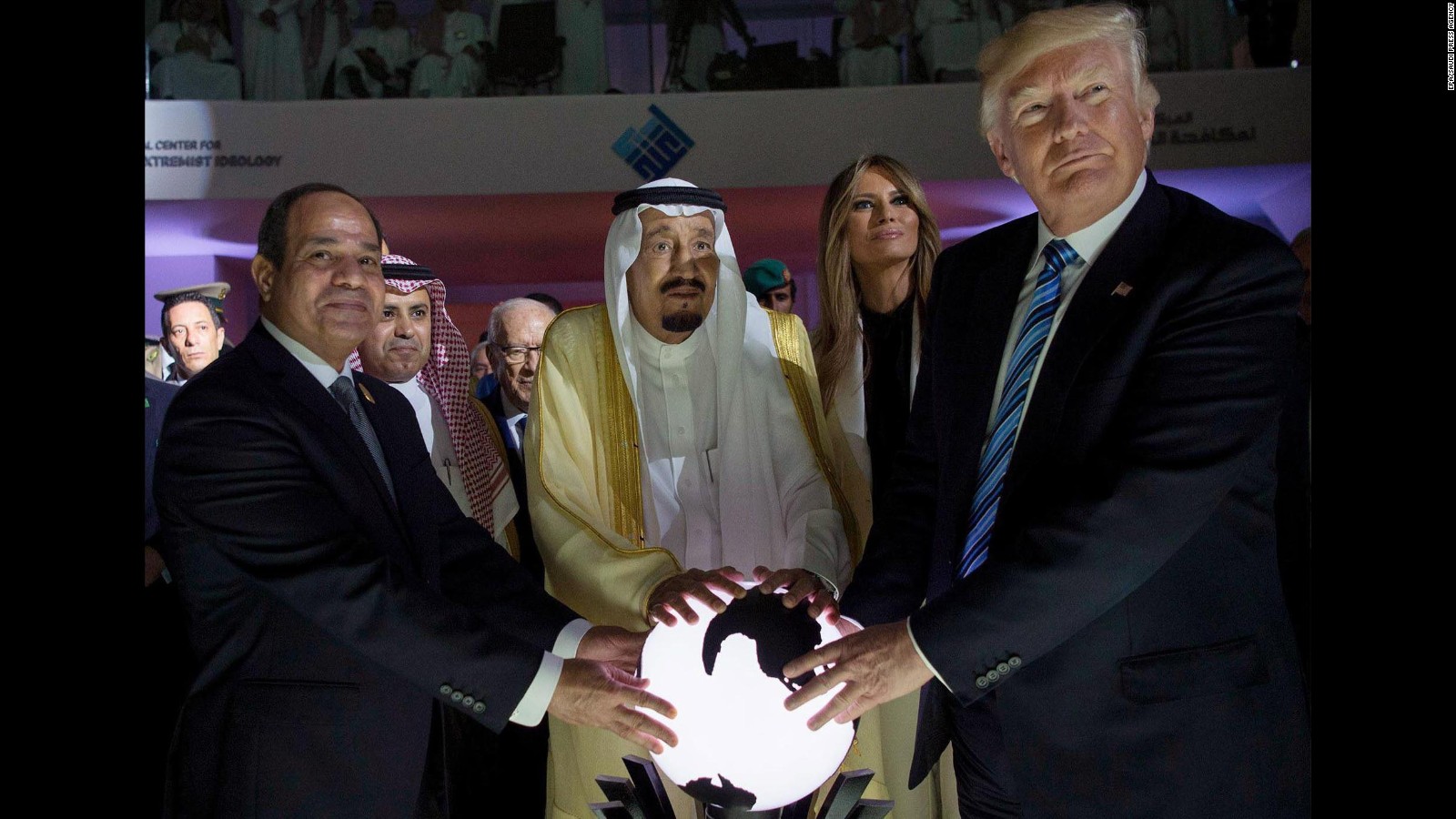Kushner instead has been operating behind-the-scenes to mitigate the fallout but leaving public explanations to others as his father-in-law's administration confronts a full-blown diplomatic crisis over the disappearance of Jamal Khashoggi. The prominent Saudi journalist has not been seen since entering the Saudi consulate in Istanbul more than two weeks ago and is widely presumed dead.
President Donald Trump's son-in-law and top adviser has remained involved in the administration's efforts, two sources familiar with the matter said, quietly leveraging his close relationship with Crown Prince Mohammed bin Salman throughout the saga when asked and retreating to the sidelines when necessary. The sources said Kushner is wary of overstepping, mindful of Secretary of State Mike Pompeo's purview as the nation's top diplomat.
The White House declined to comment on Kushner's role in the administration's response to Khashoggi's disappearance.
Senior administration officials said Kushner's close relationship with bin Salman was an early cause for concern among career national security staffers, who worried off-the-books conversations with the young prince could lead to misunderstandings or worse. Kushner is known to have messaged with the prince on the communication app WhatsApp.
But people familiar with the situation say after those concerns were raised, Kushner began notifying other members of the President's team about his conversations and providing readouts afterward.
Publicly, Trump has downplayed Kushner's close ties to Prince Mohammed, saying last week: "We have a lot of very close relationships with a lot of countries."
But in private, the President has been frustrated at news coverage of the situation, including at suggestions he and his son-in-law became overly cozy with a repressive -- and allegedly murderous -- regime.
Above scrutiny?
Kushner was walking off a flight from Washington to New York on Tuesday when a reporter seated several rows ahead of him attempted to ask about Khashoggi's disappearance.
"I don't give a damn who you work for," a Secret Service agent traveling with Kushner said when the reporter on the plane identified himself. "There's a time and a place."
That time and place didn't appear imminent on Wednesday as the administration continued to defer to an ongoing Saudi investigation into Khashoggi's disappearance.
As the crisis over Khashoggi's disappearance mounted last week, Kushner was at the President's side. He traveled with Trump to Orlando, where the President delivered remarks to a conference of police chiefs. Later he was seen chatting amicably with chief of staff John Kelly as they returned to Washington.
But even as Trump was otherwise occupied, it was becoming clear the disappearance of a dissident columnist -- and the potential involvement of the Saudi government -- would pose a test for Kushner.
Prince Mohammed, who was concerned at reports emanating from Turkey about his government's role in the disappearance, reached out to Kushner, with whom he'd met several times and established a close rapport. But when the White House returned the call, it was not only Kushner on the line but also national security adviser John Bolton.
And after the call wrapped, Pompeo followed up with a phone call to the crown prince, sending a clear signal that the matter would be handled through official diplomatic channels.
Since then, Kushner has helped shape the administration's response to the situation, which has developed into a diplomatic crisis. He and other senior administration officials have insisted in phone calls to senior Saudi officials that Riyadh investigate the matter.
This past weekend, Kushner spoke with the Saudi crown prince and urged him to launch a full and thorough investigation into Khashoggi's disappearance, a source familiar with the matter said.
Remaining in Washington
But instead of flying to the Saudi capital this week with Pompeo, Kushner remained in Washington, attending West Wing meetings as scheduled and exuding a calm demeanor amid mounting questions about whether he put too much trust in Prince Mohammed.
He was still in New York on Wednesday, absent from a Cabinet meeting Trump convened. Normally he is seated along the wall during such gatherings.
For Kushner, cultivating ties to Prince Mohammed began early in the administration, at the same time he was developing a wide portfolio as a senior adviser that included huge swaths of foreign and domestic policy. Kushner adopted responsibility for drafting a peace framework between the Israelis and Palestinians, which he once hoped could gain approval from the Saudis (those prospects seemed to dim after Trump moved the US embassy in Israel to Jerusalem).
Khashoggi's alleged killing now threatens to throw a wrench in those efforts, potentially further delaying the long-awaited peace plan Kushner has worked to formulate and which administration officials have said relies heavily on the alignment in interests between Saudi Arabia -- and Arab states that follow its lead -- and Israel.
Kushner was instrumental in arranging Trump's first stop abroad as president to occur in Riyadh, where the President was welcomed with extravagant displays of royal pageantry, including a traditional sword dance. At the conclusion of the stop, Kushner took the unusual step for a senior adviser of releasing his own statement on the visit, thanking the President's Saudi hosts and lauding "great progress" toward combating intolerance and terrorism.
Since then he's visited the Kingdom on his own, including during a tour of the Gulf in June. Prince Mohammed has also been welcomed to the White House for talks, including during an American tour that included stops in New York, Hollywood and Silicon Valley.
Bin Salman has promoted reforms within his kingdom, but some in Washington have cast skepticism on his intentions. Those came into sharp relief after the detention and reported torture of dozens of Saudis in the Ritz Carlton in Riyadh -- an episode that came just weeks after Trump stayed at the hotel on his visit.



No comments:
Post a Comment